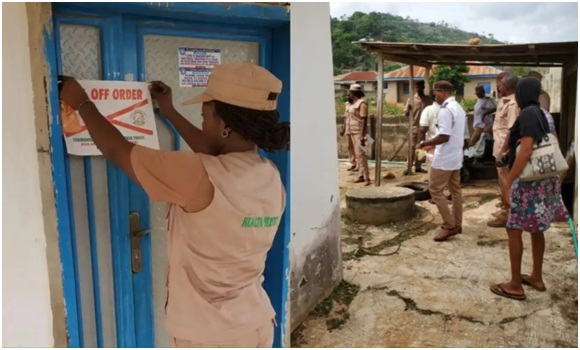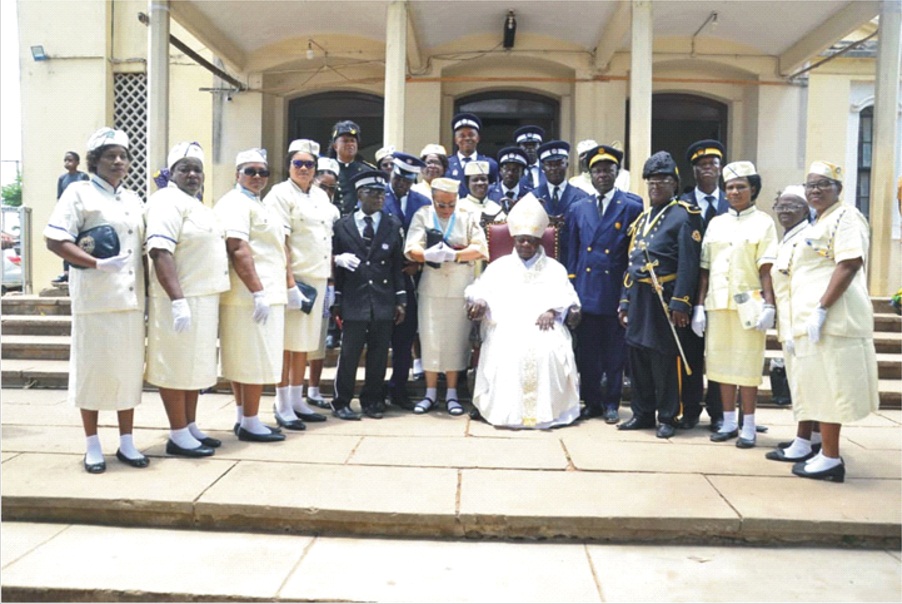Of teenagers adopting family planning
By Saheed Ibrahim
|
Researches have revealed that secondary school students, early school leavers and those in higher institutions now engage in contraceptive use, which is usually called family planning.
It was further healed teenage pregnancy that while such societal debacle is prominent in the rural areas where poverty, low literacy level and ignorance persist, those in the cities have taken up the use of contraceptives to prevent early pregnancy.
One of the nurses interviewed told The Hope that some mothers followed their girls to hospitals for several family methods, with majority going for the implant method.
Confirming this, a secondary school teacher, Mrs. Titi Adeyanju, told The Hope that there had been cases of students found with contraceptive pills. One of them was even boasting about it, she told The Hope.
In a survey among a cross-section of early school leavers and year one students of tertiary institutions conducted by The Hope, 80 percent of the girls confirmed the use of contraceptives.
This confirms why The Hope recorded low rate of registered pregnant teenagers in Akure, Ondo state capital, and other major cities but high prevalence in the rural areas.
The Hope reported that there were 167 under-20 pregnant girls who registered for antenatal care at Comprehensive Health Centre, Ore; and 52 at the General Hospital, Oba Akoko; while there were just 23 adults. There were 22 registered teenage girls at Ayede Ogbese Health Centre; nine at Primary Health Centre, Maroko, Ondo; seven at Comprehensive Health Centre, Ajagba, Irele and Health Centre Oke Mapo, Owo recorded 32 of them between January and April this year. However, only four were recorded at Federal Medical Centre, Owo; nine at Maroko Primary Health Care, Ondo and similar rate at health facilities in Akure.
It was further revealed that most pregnant teenagers seldom visit hospitals but Traditional Birth Attendants (TBAs). This was confirmed by the President of TBAs (Iya Agbebi) in Ondo state, Mrs. Adaramoye Mary Odunayo. According to her, most of them were scared of visiting government hospitals to avoid stigmatisation, while their parents or those who impregnated them would not want to go to hospital because of shame.
She revealed that teenagers as young as 12 and 13 had given birth in the state, citing poverty and low education, especially in the grassroots as causes. “It is common in TBAs. They will not want to go to hospital to avoid being abused by the doctor or nurses. Most times, the people that impregnate these children are above 50 in age,” she revealed.
Speaking on the health consequences of teenage pregnancy, the Senior Registrar, Department of Family Medicine, FMC Owo, Dr Samuel Aluko, revealed that the teenagers are exposed to life threatening health complications before, during and after birth.
Aside the fact that engaging in sexual intercourse exposes the teenagers to infections such as gonorrhea, herpes, staphylococcus, etc. and incurable diseases such as HIV/AIDs, Dr Aluko described teenage pregnancy as High Risk Pregnancy.
“The best age for a lady to get pregnant is between 25 and 35 years, according to research. This is due to the development of a lot of things in the body, as well as social maturity, physical maturity and reproductive maturity.
“So, teenage pregnancy is a high risk pregnancy. Whenever we see any child who is a teenager coming with pregnancy, we always label it as a high risk pregnancy.
“We have to closely monitor them and ensure that they have a good antenatal period and they are delivered safely and sound because their pelvic bones are not even developed. A lot of things are not developed in them.
“So, we have to be on the look out for them. They are predisposed to a lot of things, such as malaria in pregnancy, malnutrition, anaemia (low blood level) in pregnancy and giving birth to low-birth-weight babies.
“Then, they can also come down with what we call hypertensive disorder in pregnancy, and ultimately during delivery they could come down with what we call obstructed labour because their pelvic bones are not well developed to allow the baby to pass.
“Similarly, during post-delivery period, they can have some other complications because they are not mentally matured to mother a child. There are many psychological issues that they are exposed to”, the health practitioner revealed.
While adding that the pregnant teenagers may be exposed to lack of matrimonial support by having fatherless children and no financial backing, Dr Aluko warned that it is not always advisable for a teenager who is a baby to be carrying another baby.
Also reacting, the state Representative, Victoria Smile Foundation, Mrs. Feyisara Omonori, described the high level of teenage pregnancy and use of contraceptives as consequences of moral decadence, poverty and greed.
“The social media also have roles to play. We all use the media and majority of these kids are there. The platforms have no regulations and they expose users to several contents, especially pornography and other adult contents.
“There is peer pressure as well. Many of the kids are influenced by their friends in school and even at home. This explains why parents need to live up to their responsibilities and monitor their children.
“Some parents shy away from sex education, believing it is about teaching their children how to have sex. No. It is better to sit your children down and let them know all these and their consequences. Failure to teach them the right thing exposes them to wrong influence from their peers or on social media”, she explained.
While also adding that the economic situation and high level of poverty in the country, especially for those in the rural areas, have exposed young girls to several challenges, she called on parents to be good role models to their children.
“Spell out the consequences of having sex and how it affects their young minds, body and future. Be approachable to your children, so that they can talk to you, and more importantly create time for them and love them, so that they do not go out looking for love in the wrong places.”
Mrs. Omonori also recommended proper sensitisation and re-orientation to instill moral values in children and the public at large, adding that there was need to inculcate appropriate sex education into school curriculum.
In her contribution, Ondo State Coordinator, Network of Reproductive Health Journalists, Nigeria (NRHJN), Alhaja Fatima Muraina, described as unfortunate the level of pregnancy and contraceptive use among teenagers in Nigeria in general.
She attributed this to the failure of government to live up to its responsibilities of providing health-friendly programmes and care services across the country. According to her, this gives the youths free room to explain their health challenges to professionals and get the right advice.
She also identified poverty, failure of the family, high literacy, low sex education, lack of parental care, economic hardship and youthful Exuberance as causes as well.
She identified that these had led to the emergence of many fatherless children, single parents, dumping of children on the streets and high abortion rate, which had led to damage of internal and reproductive organs and sometimes death. She added that many of the babies from teenage pregnancies were therefore prone to abuse, child labour and delinquencies, among others.
In her recommendation, the Ondo NRHJN Coordinator suggested that parents, schools, companies, individuals and government must work together as responsible stakeholders to end the debacles.
In her words, “This report shows that more needs to be done on education and sensitisation of the public, schools and the family. Government must also be proactive enough and wake up to its responsibilities. Creating youth-friendly centres will also help a long way. Government must formulate the right policies and implement them. We need more policies on teenage pregnancy and contraceptive use. We have some of these policies but they are not well implemented.”
While calling on parents to live up to their responsibilities, Alhaja Muraina also called for introduction of sex education into school curriculum and building of confidence into the female child. She also called on schools to live up to their socialisation roles and educate, monitor and nurture the students in their care, calling for robust school-parents relationship.
Stressing that teenage pregnancy could lead to death of the mother and the baby and other health complications, the Programme Officer, Kids and Teens Resource Centre, Olubukola Aremu, recommended that schools should have working relationship with NGOs and CSOs with right resources to teach students sex education.
She also urged government to initiate birth control policy, provide youth-friendly centres and embark on aggressive reorientation of the public, especially those in the rural areas.










